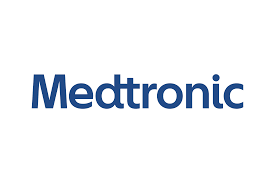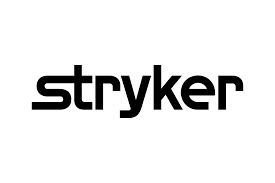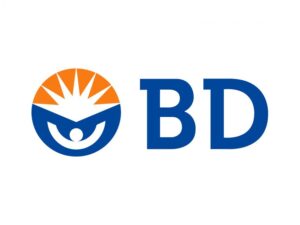Did you know that the global medical devices market is projected to reach a staggering $745 billion by 2030? In this rapidly evolving industry, Boston Scientific stands as a giant – but it’s not alone. Today, we’re diving deep into the world of medical device manufacturers to uncover the top competitors challenging Boston Scientific’s dominance. From innovative startups to established powerhouses, these companies are shaping the future of healthcare technology. Buckle up as we explore the dynamic landscape of medical device competition!
The Medical Device Industry Landscape
Before we delve into the specific competitors, let’s take a moment to understand the current state of the medical device industry. It’s a sector characterized by rapid innovation, stringent regulations, and an ever-increasing demand for advanced healthcare solutions.
Boston Scientific, founded in 1979, has carved out a significant position in this landscape. With a market capitalization of over $176 billion as of October 2024, the company has established itself as a leader in developing and manufacturing a wide range of medical devices. Their products span across cardiovascular, rhythm management, and MedSurg categories, among others.
However, the medical device industry is far from a one-horse race. Competition is fierce, driven by several key factors:
- Technological advancements: The rapid pace of technological innovation means companies must constantly invest in R&D to stay ahead.
- Aging populations: As global demographics shift towards older populations, the demand for medical devices continues to grow.
- Increasing healthcare expenditure: Both developed and developing nations are allocating more resources to healthcare, creating opportunities for medical device manufacturers.
- Regulatory changes: Evolving regulatory landscapes can create both challenges and opportunities for companies in this space.
In this competitive environment, let’s examine the top challengers to Boston Scientific’s throne.
1. Medtronic

Website – https://www.medtronic.com/
When it comes to medical device manufacturing, Medtronic is a name that commands respect. Founded in 1949, this Dublin-based company has grown into a global powerhouse with a presence in over 150 countries.
Medtronic’s product portfolio is vast, encompassing cardiovascular devices, diabetes care solutions, neuroscience technologies, and much more. This diversity allows them to compete with Boston Scientific across multiple fronts.
One of Medtronic’s key strengths lies in its cardiac and vascular group, which directly competes with Boston Scientific’s cardiovascular division. Medtronic’s pacemakers, defibrillators, and heart valves are renowned for their quality and innovation.
In recent years, Medtronic has made significant strides in robotic-assisted surgery with its Hugo™ RAS system, challenging Boston Scientific’s position in minimally invasive surgical technologies. Their continued investment in R&D – approximately $2.3 billion annually – ensures a steady pipeline of innovative products.
Financially, Medtronic has consistently outperformed Boston Scientific in terms of revenue. In 2023, Medtronic reported revenue of $31.2 billion compared to Boston Scientific’s $14.2 billion. This financial muscle gives Medtronic significant resources for research, acquisitions, and market expansion.
2. Abbott Laboratories

Website – https://www.abbott.com/
Abbott Laboratories is another formidable competitor that Boston Scientific must contend with. With a history dating back to 1888, Abbott has evolved into a diversified healthcare company with a strong presence in medical devices, diagnostics, nutrition, and branded generic pharmaceuticals.
In the medical device arena, Abbott goes head-to-head with Boston Scientific in several key areas:
- Cardiovascular devices: Abbott’s coronary stents and structural heart products compete directly with Boston Scientific’s offerings.
- Diabetes care: Abbott’s FreeStyle Libre continuous glucose monitoring system has been a game-changer in diabetes management.
- Neuromodulation: Both companies offer devices for chronic pain management and movement disorders.
Abbott’s acquisition of St. Jude Medical in 2017 significantly bolstered its cardiovascular device portfolio, intensifying the competition with Boston Scientific. This move brought in additional expertise in atrial fibrillation devices and heart failure monitoring systems.
One of Abbott’s key strengths is its balanced portfolio across different healthcare segments. This diversification provides stability and allows for cross-pollination of ideas and technologies between divisions.
3. Johnson & Johnson

Website – https://www.jnj.com/
Johnson & Johnson (J&J), a household name in consumer health products, is also a major player in the medical device industry. Their medical device division, which accounts for about a third of the company’s total revenue, competes with Boston Scientific in several key areas.
J&J’s Ethicon subsidiary is a direct competitor to Boston Scientific in surgical instruments and wound closure devices. Additionally, their DePuy Synthes division competes in orthopedics and spinal devices.
In recent years, J&J has made significant investments in robotic surgery. Their acquisition of Auris Health and subsequent development of the Ottava surgical robotic system positions them as a strong competitor in this rapidly growing field.
J&J’s vast resources and diverse healthcare portfolio allow them to weather market fluctuations and invest heavily in R&D. Their strong brand recognition and global reach make them a formidable competitor to Boston Scientific and other medical device manufacturers.
4. Stryker Corporation

Website – https://www.stryker.com/index.html
While Stryker Corporation may not be a household name like Johnson & Johnson, it’s a powerhouse in the medical technology sector, particularly in orthopedics and surgical equipment. Founded in 1941 by Dr. Homer Stryker, an orthopedic surgeon, the company has grown into a global leader in medical technology.
Stryker’s main areas of competition with Boston Scientific include:
- Neurotechnology and Spine: Both companies offer products for neurosurgery and spinal procedures.
- Endoscopy: Stryker’s endoscopy division competes directly with Boston Scientific’s endoscopy products.
- Interventional Spine: Both companies provide minimally invasive solutions for spinal procedures.
One of Stryker’s key strengths is its dominance in the orthopedic implant market, particularly in joint replacements. While this isn’t a primary focus for Boston Scientific, it gives Stryker a strong position in the overall medical device market.
Stryker has also been making significant strides in robotic surgery with its Mako robotic-arm assisted surgery system for orthopedic procedures. This focus on cutting-edge technology keeps them competitive in the rapidly evolving medical device landscape.
5. Becton, Dickinson and Company (BD)

Website – https://www.bd.com/
Becton, Dickinson and Company, more commonly known as BD, is a global medical technology company that specializes in medical devices, instrument systems, and reagents. While their focus areas differ somewhat from Boston Scientific, there are several areas of overlap and competition.
BD’s strengths lie in:
- Medication Management Solutions: Their infusion pumps and medication dispensing technologies compete with similar offerings from Boston Scientific.
- Peripheral Intervention: Both companies offer a range of products for minimally invasive procedures.
- Urology and Critical Care: BD’s catheter products compete with Boston Scientific’s urology portfolio.
BD’s acquisition of C. R. Bard in 2017 significantly expanded their portfolio in vascular, urology, oncology, and surgical specialty products, areas where they now compete more directly with Boston Scientific.
One of BD’s unique strengths is its leading position in the diagnostic systems market, particularly in COVID-19 testing solutions. This diversification provides stability and growth opportunities that complement their medical device offerings.
6. Siemens Healthineers

Website – https://www.siemens-healthineers.com/
Siemens Healthineers, a spinoff from the larger Siemens corporation, is a major player in the medical technology space, particularly in imaging and diagnostics. While their focus differs somewhat from Boston Scientific, there are areas of overlap and competition.
Key areas of competition include:
- Advanced Therapies: Siemens Healthineers provides imaging systems and robotic technologies for minimally invasive procedures, competing with Boston Scientific’s interventional devices.
- Diagnostic Imaging: While not a primary focus for Boston Scientific, both companies offer solutions in this space.
Siemens Healthineers’ strength lies in its advanced imaging technologies and its push towards digitalization and AI integration in healthcare. Their AI-Rad Companion, for instance, is a family of AI-powered software assistants for radiologists.
While Boston Scientific may lead in interventional devices, Siemens Healthineers’ imaging expertise provides critical complementary technologies for many medical procedures, making them an important player in the overall medical device ecosystem.
7. Edwards Lifesciences

Website – https://www.edwards.com/
Edwards Lifesciences is a specialized player in the medical device industry, focusing primarily on products and technologies to treat advanced cardiovascular disease. This focused approach puts them in direct competition with Boston Scientific in several key areas.
The main competitive areas include:
- Transcatheter Heart Valves: Both companies are leaders in this innovative technology for treating heart valve diseases.
- Surgical Heart Valves: Edwards Lifesciences has a strong heritage in this area, competing with Boston Scientific’s surgical valve offerings.
- Critical Care Technologies: Both companies provide monitoring systems for critically ill patients.
Edwards Lifesciences’ SAPIEN family of transcatheter heart valves has been a game-changer in the treatment of aortic stenosis, challenging Boston Scientific’s ACURATE neo2™ Aortic Valve System.
Their focus on structural heart disease has allowed Edwards Lifesciences to build deep expertise and strong relationships with cardiac surgeons and interventional cardiologists. This specialized knowledge and network is a key competitive advantage in the cardiovascular device market.
8. Zimmer Biomet

Website – https://www.zimmerbiomet.com/en
Zimmer Biomet is a global leader in musculoskeletal healthcare. While their primary focus on orthopedic implants doesn’t directly overlap with Boston Scientific’s core business, there are areas where the two companies compete.
Key areas of competition include:
- Spine solutions: Both companies offer products for spinal surgeries and therapies.
- Sports medicine: Zimmer Biomet’s sports medicine products compete with some of Boston Scientific’s offerings.
- Surgical technologies: Both companies provide solutions to improve surgical outcomes.
Zimmer Biomet’s strength lies in its comprehensive portfolio of orthopedic products, from joint replacements to trauma devices. Their recent focus on “smart” implants and digital health solutions shows their commitment to innovation in the musculoskeletal space.
While not a direct competitor across all product lines, Zimmer Biomet’s strong position in orthopedics makes them a significant player in the overall medical device market, potentially competing for market share and resources.
9. Philips Healthcare

Website – https://www.usa.philips.com/healthcare
Royal Philips, through its Philips Healthcare division, is a major player in the medical technology space. While traditionally known for its imaging systems, Philips has expanded its healthcare offerings to compete more directly with companies like Boston Scientific.
Areas of competition include:
- Image-Guided Therapy: Philips’ interventional X-ray systems and devices compete with Boston Scientific’s interventional cardiology and peripheral intervention products.
- Patient Monitoring: Both companies offer solutions for monitoring patient vital signs in various healthcare settings.
- Diagnostic Imaging: While not a primary focus for Boston Scientific, both companies have offerings in this space.
Philips’ strength lies in its integrated approach to healthcare technology. Their focus on connected care and digital health solutions sets them apart in the industry. The Philips HealthSuite digital platform, for instance, aims to connect devices, collect data, and provide actionable insights across the health continuum.
Philips’ recent acquisition of Spectranetics, a vascular intervention and lead management solutions provider, has intensified the competition with Boston Scientific in the cardiovascular space.
Emerging Competitors and Startups to Watch
While established giants dominate much of the medical device landscape, it’s crucial not to overlook emerging competitors and startups. These smaller, agile companies often drive innovation and can potentially disrupt the market.
Some notable startups to watch include:
- Butterfly Network: Their handheld ultrasound devices could revolutionize medical imaging.
- Neuralink: Elon Musk’s brain-computer interface company could disrupt the neuromodulation market.
- Guardant Health: Their liquid biopsy technology for cancer detection could impact the diagnostic device market.
- Outset Medical: Their innovative dialysis system is challenging traditional dialysis providers.
These startups, and others like them, are pushing the boundaries of medical technology. Their innovations in areas like AI-driven diagnostics, robotics, and personalized medicine could reshape the competitive landscape, potentially challenging established players like Boston Scientific.
Conclusion
As we’ve seen, the medical device industry is a hotbed of innovation and fierce competition. Boston Scientific faces formidable challengers on multiple fronts, from diversified healthcare giants to specialized innovators. The key to success in this dynamic landscape lies in continuous innovation, strategic partnerships, and the ability to adapt to rapidly changing healthcare needs.
For Boston Scientific and its competitors, the race to develop cutting-edge medical technologies that improve patient outcomes will continue to drive the industry forward. The companies that can effectively navigate regulatory challenges, leverage emerging technologies like AI and robotics, and respond quickly to changing healthcare demands are likely to lead the pack.
As healthcare professionals, investors, or simply curious observers, keeping an eye on these top competitors will provide valuable insights into the future of medical technology. The medical device industry is undoubtedly one to watch closely in the coming years. Who will lead the pack in 2025 and beyond? Only time will tell, but one thing’s for sure – the innovations emerging from this competitive landscape will continue to transform healthcare and improve lives around the world.
Also Read: Top Medtronic Competitors: A Comprehensive Analysis
Also Read: Who are Johnson & Johnson’s Top Competitors?
To read more content like this, subscribe to our newsletter




